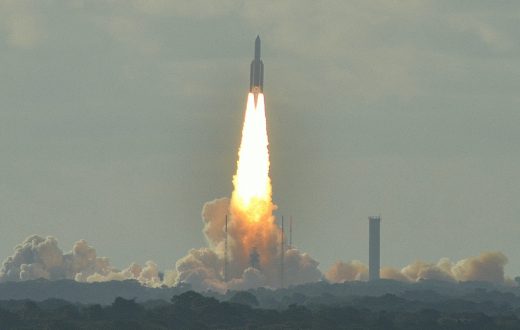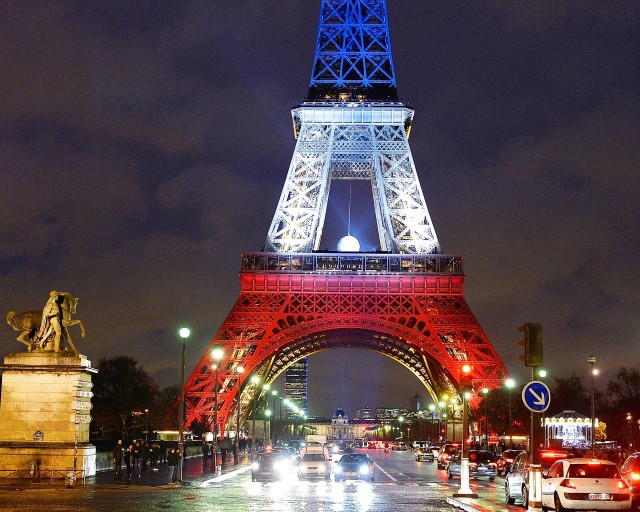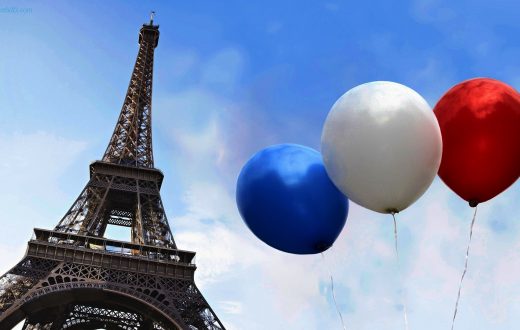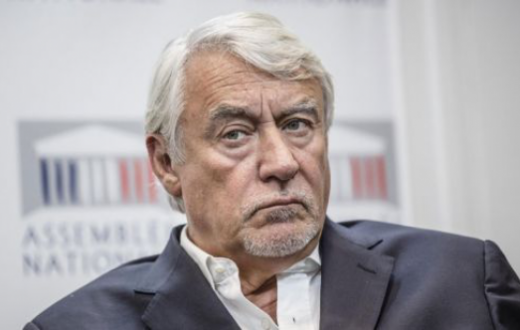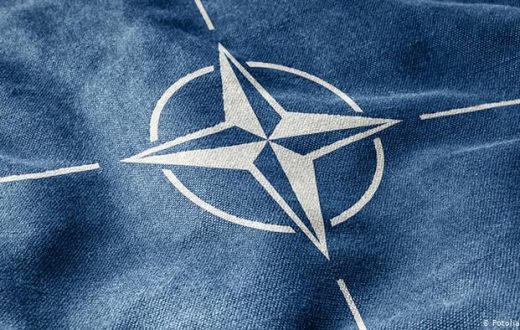Forecast
- Chad’s place on the African continent and within French strategy will ensure that Paris maintains its active military presence in the country.
- To remind foreign powers of its importance, Chad will cooperate with other militaries and lend its capable army to regional stability missions.
- The symbiotic relationship between France and Chad will endure as Paris tries to safeguard its influence in Africa and N’Djamena seeks the security its European ally provides.
Analysis
More than three years have passed since the French military intervened in Mali to root out radical Islamists who had seized the northern half of the country. Operation Serval, which began in January 2013 as militants marched on the central Malian city of Mopti, marked a turning point in French President Francois Hollande’s administration — in no small part by thawing the leader’s chilly relationship with his Chadian counterpart, Idriss Deby.
But the operation also underscored Chad’s enduring importance to France, regardless of the figures leading the two countries. For more than a century, the African nation has served as a garrison protecting Paris’ sway in the region — influence that France will be loath to give up. Given the advantages a friendship with France can offer Chad as well, little is likely to shake the tight bonds connecting the two in the years ahead.
Guarding the Empire’s Periphery
Despite being landlocked and poor, Chad has long played a critical role in France’s strategy on the African continent. In the late 19th century — a period that became known as “The Scramble for Africa” — France yearned to control the Sahara and any trade that crossed it. Paris also hoped to link its colonial possessions into a single swath of territory stretching from Senegal in the west to French Somaliland (today known as Djibouti) in the east. But the Fashoda Crisis of 1898, in which British troops halted a French colonial expedition as it moved toward the Sudan, brought a swift and decisive end to France’s eastward expansion. Though Britain eventually succeeded in joining its African holdings from Alexandria to Cape Town, France never managed to conquer the Nile Valley — the final piece needed to merge the two halves of its African empire.
Instead, the French push to the east ended at Chad. As the new terminus of French Equatorial Africa, Chad was tasked with protecting the empire’s flank from numerous threats, including British troops in Anglo-Egyptian Sudan and Italian forces in Libya. After becoming a French protectorate in 1900, Chad was converted to a colony two decades later. During that time, French strategic planners conceptually split Chad in two: the “useless,” desolate portion in the north and the “useful,” fertile portion in the south. To them, the latter represented the colony’s core, while the former simply provided strategic depth.
But in August 1940, three months after France fell to Nazi Germany, the entirety of Chad became crucial to French war planners. The colony was the first to rally behind the Free French Forces of Gen. Charles de Gaulle, granting his troops a theater in which to keep fighting after Paris had capitulated. Moreover, several Central African colonies that were previously undecided between backing Vichy France or de Gaulle opted to follow Chad’s lead. Stationed at the colony’s capital, Fort Lamy, the Free French Forces were well-positioned to attack Axis troops in North Africa. With the help of the British Long-Range Desert Group, the French forces advanced northward and defeated Fascist Italy’s troops at Kufra, Libya. From there, they joined additional British forces pushing eastward, playing a small role in the broader Allied effort to wipe the Axis powers from the African continent before taking aim at the heart of Italy.
Navigating a Post-Colonial Africa
France has maintained a somewhat peculiar relationship with its former African colonies since they gained independence in 1960. After all, they had long been intertwined with France’s notions of grandeur and global prominence, in part because of the economic resources they provided. Though Chad itself — a country with few resources of its own — would normally be of little consequence to a foreign patron seeking economic wealth, its location proved invaluable. Nestled among neighbors plagued with threats to stability and security, Chad served during the Cold War as a vital component of France’s defenses in its former African holdings — uranium-rich Niger, oil-producing Gabon and cocoa-growing Ivory Coast, to name a few. By maintaining a strong military presence in Chad, France was able to guard the abundant resources of its core from the reach of foreign rivals. In exchange for acting as the region’s security guarantor, France also gained preferential access to its markets.
Chad’s position in the heart of the Sahel has given France the opportunity to take quick and decisive action in Africa, building the confidence of African leaders that Paris can and will make good on its security promises. This became especially important as competitors to French muscle began arising in the region. In 1983, for example, a joint force of Libyan soldiers and Chadian rebels attacked from Chad’s remote north, hoping to reinstall the exiled former Chadian president and bring the country under Libya’s domain. From there, the forces of Libyan Col. Moammar Gadhafi could spread deeper into Central Africa. In the absence of an African response to the invasion, French President Francois Mitterrand ordered his military to intervene. Soon 3,500 troops were deployed along the 15th parallel — the historical divider between Chad’s “useless” north and “useful” south — to rebuff Libya’s advances. Referring to his decision, Mitterand remarked, “In this complicated affair, it is necessary to have one simple idea. If Niger and [Cameroon] crack, it will be the end of French influence in Africa.”
In the minds of French planners, the credibility of Paris’ security promises to its African allies — which it had spent decades building — would have been shattered had it failed to act. (Gabon, for instance, is said to have flirted with the idea of requesting a U.S. security umbrella in the wake of Washington’s intervention in Libya, no doubt a move meant to pressure Paris into acting as well.)
A Natural Source of Protection
Of course, France’s relationship with Chad has not been one-sided. Widespread poverty, political instability, economic underdevelopment and ethnic rivalries have placed an enormous burden on Chadian leaders. In an effort to ease that burden and improve its security, the country has ingratiated itself to larger powers by making available its experienced army and central location on the continent. France, which has maintained a near-constant military presence in Chad for decades, was an obvious choice of partner for N’Djamena, which now serves as the headquarters for Paris’ regional counterterrorism force. In return for France’s protection, the Chadian government lends its unwavering support for Paris’ goals elsewhere in Africa.
This arrangement has proved highly beneficial to Deby, who has encountered numerous threats to his rule over the course of his administration. In 2005, for example, French special operations forces helped thwart the United Front for Democratic Change’s plans to unseat Deby while he was at a summit in Equatorial Guinea. A similar attempt was averted in 2008, when members of Deby’s inner circle and family tried to overthrow him, advancing inside the city limits of N’Djamena only to be defeated by government troops armed with French intelligence and weapons.
The strength of the bond between Paris and N’Djamena forced Hollande to change his tune regarding Deby after rising to power in 2012. Hollande fiercely critiqued Deby’s legitimacy and blamed him for the disappearance and alleged murder of Chadian politician Ibni Oumar Mahamat Saleh. The two men’s frosty relationship lasted late into 2012, when a crisis in northern Mali gave Deby an opportunity to deploy his battle-tested army and demonstrate his country’s role in the region. Five days after France’s Operation Serval began, Deby announced that Chad would send 2,000 elite troops — including members of the vaunted Presidential Guard — to Mali, an offer Hollande quickly accepted. Soon the Chadian forces, who were integrated into France’s military command structure, were engaging Islamist militants in some of the most heated battles of the conflict. From then on, Chad’s position as the West’s most capable partner in the fight against African Islamist militancy was assured.
Chad’s impressive performance in the Malian conflict was followed by an intervention in the Central African Republic after the fall of President Francois Bozize, once one of Deby’s proteges. Chad supported France as it attempted to prevent a genocide it believed to be unfolding in the Central African Republic at the time. Then, in 2015, Chad joined several of its neighbors in the formation of a West African coalition to destroy Wilayat al Sudan al Gharbi, a Nigerian militant group better known by its former name, Boko Haram. France, likewise, has actively worked to combat the group’s activities.
So far, the boon of France’s friendship has enabled Chad’s leaders to deflect criticism of the country’s inherent flaws. Partnering with Paris has given Chad a means to acquire new weapons and aid from international lenders, which, in addition to rising oil revenue, have made it easier for the country to maintain security within its borders. France, meanwhile, has continued to rely on its Chadian connection to project its influence and protect its interests throughout Africa. And as long as threats to stability in France’s former empire persist, the agendas of N’Djamena and Paris will remain aligned for many years to come.
Source : Stratfor


